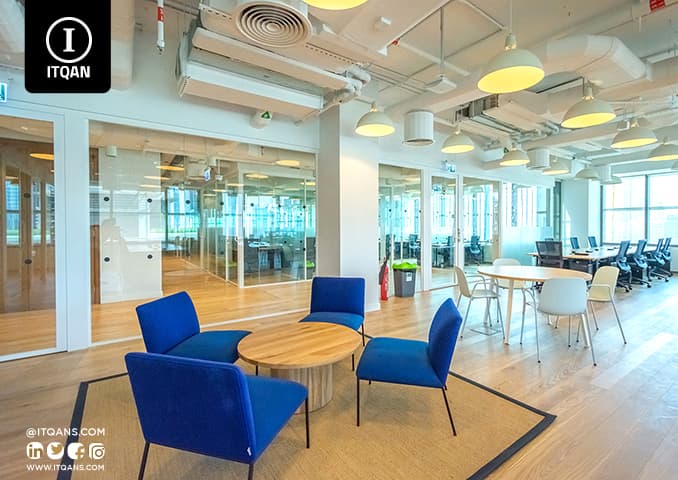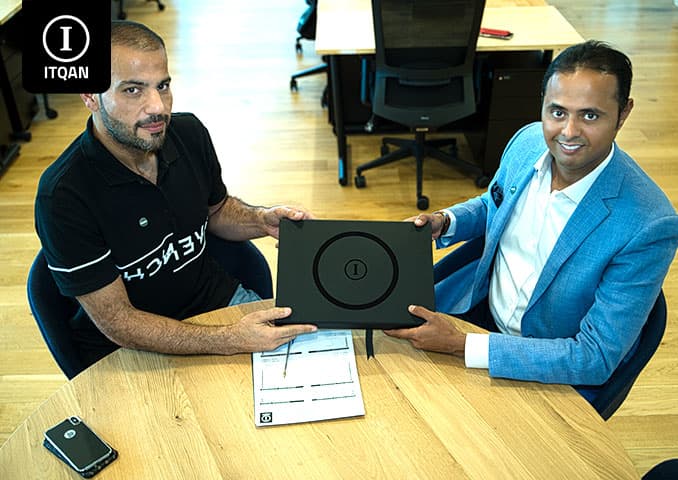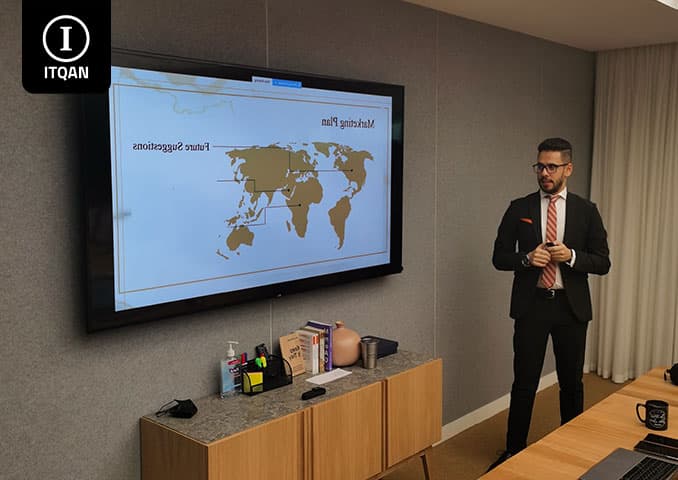How to set up a company in Dubai Free Zone? Dubai is one of the most prominent global destinations that attract entrepreneurs and investors from all over the world, thanks to its thriving economic environment and advanced infrastructure. One of the most prominent advantages offered by the emirate is the free zones that provide an ideal and tax-free investment environment and grant full ownership to foreign investors. Establishing a company in Dubai Free Zone is a strategic option for those wishing to expand their businesses or start new projects in the region, as these areas provide exceptional incentives that include fast procedures for establishing companies, easy transfer of capital, and diversification of economic sectors. In addition, obtaining professional support from consulting companies such as “Atqan” facilitates all stages of establishing a business for investors, from planning to obtaining licenses. We will review some details about establishing a company in Dubai Free Zone .

جدول المحتوى
ToggleSteps to establish a company in the Dubai Free Zone
Establishing a company in the Dubai Free Zone requires following specific steps to ensure compliance with the laws and facilitate the process of starting a business. Here are the most important steps:
- Choosing a business activity: The first step is to determine the type of business activity you wish to practice, as activities vary between commercial, industrial, and service, and the appropriate activity must be chosen according to the requirements of the free zone.
- Determine the right free zone: Dubai has several free zones such as Jebel Ali, Dubai South, and Dubai Airport. You should choose the free zone that matches your business activity and the specific needs of your company.
- Determine the legal form of the company: You can choose the appropriate form of company, whether it is a limited liability company, a branch of a foreign company, or a sole proprietorship.
- Submitting the required documents: The required documents usually include a passport, an application form for establishment, a business plan, and a copy of previous licenses if any.
- Obtaining approvals: The application is submitted to the authority responsible for the free zone to obtain the necessary approvals.
- Renting a company headquarters: Most free zones provide office spaces or warehouses to suit the needs of the business. You will need to rent an office or warehouse depending on your activity.
- Issuing a commercial license: After completing the procedures, the commercial license is issued, which is the step that allows you to start practicing your commercial activity.
- Opening a Bank Account: Finally, you need to open a bank account in the name of the company to start financial transactions and following these steps will help in establishing your company smoothly and ensuring compliance with all legal requirements.
Documents required to establish a company in the Dubai Free Zone
The documents required to establish a company in the Dubai Free Zone vary depending on the type of company and business activity, but in general, the basic documents include the following:
- Passports: Color copies of passports of founders, directors and investors.
- Portraits: Recent portraits of founders and directors.
- Establishment Application Form: Fill out the establishment application form for the free zone, which includes details about the company and the activity.
- Business Plan: A document that details the business activity and future plans of the company.
- Qualifications: Educational and professional certificates of founders and directors (if required).
- Articles of Association: A draft of the company’s articles of association, which outlines the management structure and the rights and duties of the partners.
- Office Address: Proof of address of the rented office or warehouse in the free zone, such as a lease agreement.
- Partner Details: Information about the partners or shareholders of the company, including any documents proving their ownership.
- Powers of Attorney: If there are agents or legal representatives, formal powers of attorney must be provided to them.
- Document requirements vary slightly depending on the free zone and type of activity, so it is best to check the specific requirements of the free zone you choose and contact the responsible authority for an exact list of required documents.
Cost Factors of Setting Up a Company in Dubai Free Zone
The cost of setting up a company in Dubai Free Zone is affected by several key factors, which can vary based on the requirements of the business and the type of company. The following are the main factors that determine the cost of setting up:
- Type of Business: Costs vary depending on the type of business (commercial, industrial, service) and its specific requirements.
- Free Zone: Each free zone in Dubai has a different pricing structure. Some areas may offer special deals or lower prices, while others are more expensive.
- Company Type: The cost of incorporation depends on the type of company (LLC, branch of a foreign company, sole proprietorship). Some types may be cheaper or more expensive than others.
- Office Size: The cost of renting an office or warehouse in the free zone depends on its size and location within the zone.
- Licenses and Fees: The cost includes business licenses, administrative fees, and necessary insurance. These fees vary depending on the activity and size of the company.
- Additional Services: Costs of any additional services such as accounting, legal advice, and visas for employees.
- Number of Shareholders: Some free zones may charge additional fees based on the number of shareholders or directors in the company.
- Timeframe for establishment: Costs may vary depending on the speed of establishment, as there may be additional fees to expedite the procedures.
- Contacting the authority responsible for the free zone or consulting a company specializing in incorporation can help you get an accurate estimate of the costs associated with establishing your company.
Advantages of establishing a company in the Dubai Free Zone
Establishing a company in the Dubai Free Zone offers many advantages that make it an attractive destination for investors and entrepreneurs. Among the most prominent of these advantages are:
- Full ownership: Incorporating in a free zone allows you to own 100% of the company without the need for a local partner.
- Tax Exemptions: Companies in free zones enjoy full tax exemptions on personal and business profits, reducing operating costs.
- Customs facilities : Free zones provide exemption from customs duties on imports and exports, which contributes to reducing logistics costs.
- Fast and simple procedures: Administrative procedures in free zones are fast and simple, which speeds up the process of establishing a company and launching a business.
- Providing advanced infrastructure: Free zones have a modern and advanced infrastructure that includes offices, warehouses, and logistics facilities that support all business needs.
- Ease of capital transfer: Capital and profits can be freely transferred outside the UAE without restrictions, facilitating financing and money management operations.
- Visas for employees: Free zones provide facilities for obtaining visas for employees, which helps in attracting and employing global talent.
- Government Support: Companies benefit from government support and guidance from the bodies supervising the free zones, which enhances opportunities for growth and expansion.
- Strong Business Network: Free zones provide a thriving business environment with a wide network of other companies, which contributes to building business relationships and strategic partnerships.
- Security and Stability: Dubai enjoys a safe and stable investment environment, which adds additional value to investments and enhances the financial security of companies.
- These advantages are a strong incentive to invest in Dubai’s free zones, providing a favorable business environment and a successful model for starting a business.
At the end of our article on establishing a company in the Dubai Free Zone , it is clear that these areas provide an ideal investment environment that combines customs facilities, tax exemptions, and fast establishment procedures. Dubai is an attractive destination for investors thanks to its advanced infrastructure, government support, and the freedom to own 100% of the company. In addition, the free zones provide wide opportunities for growth and expansion through a strong trade network and visa facilitation. Investing in these areas is a strategic choice for investors looking for the success of their businesses in a stable and secure environment. Given all these advantages, establishing a company in the Dubai Free Zone becomes a smart move that enhances the chances of success and prosperity in the global market.
Frequently asked questions about establishing a company in the Dubai Free Zone
What are the free zones in Dubai?
Free zones in Dubai are designated business areas that offer benefits such as tax exemptions and customs facilities. Dubai has several free zones, such as Jebel Ali, Dubai South, and Dubai Airport, each with its own requirements and features.
What types of companies can be established in the free zone?
You can establish several types of companies, such as limited liability companies, branches of foreign companies, or sole proprietorships, depending on the business activity and requirements.
How long does it take to establish a company in the free zone?
The incorporation process usually takes from a few weeks to a month, depending on the speed of submitting the documents and compliance with the required procedures.
What are the costs associated with setting up a company in the free zone?
Costs include administrative fees, business licenses, office rent, and insurance. These costs may vary depending on the type of business and the size of the company.
















